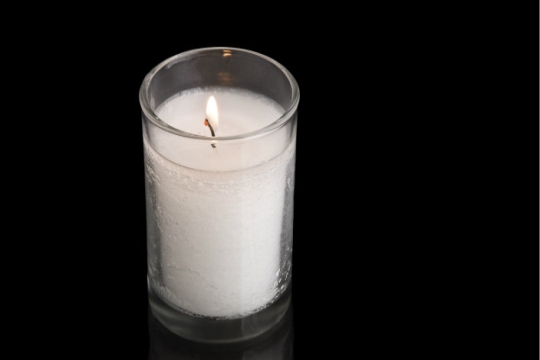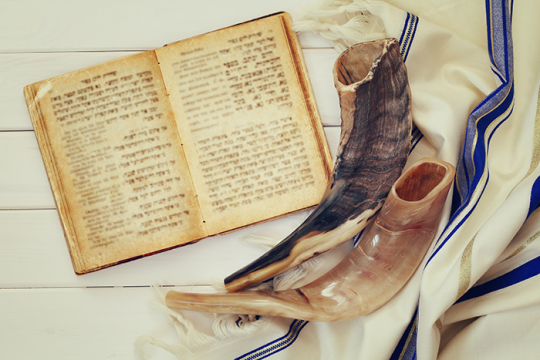
Last fall, I took my now-husband to High Holiday services for the first time. When Yom Kippur arrived, he, like many Jews, found a way to forgive himself for his past mistakes.
The Day of Atonement gave him an opportunity to practice t’shuvah (repentance), to become the better person he strove to be. My husband not only found the whole experience transformative, but observing Yom Kippur inspired him to start his conversion to Judaism.
As I witnessed my husband’s experience, it hit me that I have never experienced anything even close to the amazing one he and many others have on Yom Kippur. Until last year, I had never grown or healed on this holiday; in fact, most years I dreaded it. After many long conversations with my family, as well as tons of soul-searching, I was able to identify the reason why.
Yom Kippur is the holiest day of the Jewish year, but for those of us who struggle with eating disorders or disordered eating, it can be one of the most triggering and challenging.
I’ve had a difficult relationship with food since I was a young child, and I had my first real encounter with disordered eating in elementary school. Over time, what began as occasionally skipping meals or overeating spiraled into a full-blown eating disorder. By the time I was 16, I was diagnosed with anorexia nervosa. At the center of my disorder was the need for control over what I was eating, and a holiday that required me to give up that control sent me into a downward spiral.
For years, Yom Kippur trapped me in a cycle of misery. If I chose to fast, I reinforced the dangerous behaviors that were controlling my life, and if I chose to eat, I felt shameful and disappointed in myself. Either way, I felt like a bad Jew for allowing my disorder to control my experience with prayer and spirituality.
Over the years, I used Yom Kippur as an excuse not to eat for a day. However, after the day had come and gone, I would still rarely eat. Yom Kippur unraveled any progress I had made and inspired me to hurt myself even more. Instead of starting each year off refreshed after the day of repentance and self-discovery, I was exhausted, sick, and starving.
After one exceptionally difficult year, I started the long journey of recovery. Hand-in-hand with my parents, I vowed to try and change the path of self-destruction on which I was set. By the time Yom Kippur arrived, my parents insisted that I eat, despite my adverse reaction to the idea. My mother is a cantor, and was obviously swamped on Yom Kippur. Thankfully, despite her absurdly busy day, she made me breakfast, had my father take me out to lunch between services, and watched every bite go into my mouth at the break-fast.
And the next morning? I ate.
It’s not that I didn’t struggle with eating that day, but nourishing myself on Yom Kippur helped me break the cycle of my anorexia. I began to think that maybe the holiday did not have to be such a challenge after all.
Fast forward to last fall when my husband first experienced the High Holidays. That Yom Kippur, I ate again throughout the entire day, this time without prompting from my family members. This act was a huge step on my path to recovery! Last year was the first time I truly fulfilled the act of t’shuvah (turning) on Yom Kippur. I was tempted to fall back into my old habits, but instead I put my foot down and fought my anorexia head-on.
This year, I’m proudly eating again on Yom Kippur to concentrate, repent, and fully appreciate the holiday. Just like a person with a physical illness, fasting has a negative effect on my health, and I refuse to continue subjecting myself to unnecessary pain. I am determined to experience Yom Kippur the way my husband did, and, for me, eating is the path toward that goal. This year will be a year of healing and recovery, so let’s start it off right! If you also struggle with eating disorders or disordered eating, I urge to join me in eating, drinking, and completing t’shuvah this Yom Kippur.
Jewish tradition recognizes that fasting is not a safe practice for all Jews. For those who are unable to fast, this Meditation Before Yom Kippur for One Who Cannot Fast may be meaningful.
Related Posts

Creating High Holiday Memories for Children

You’re Invited to Remember

